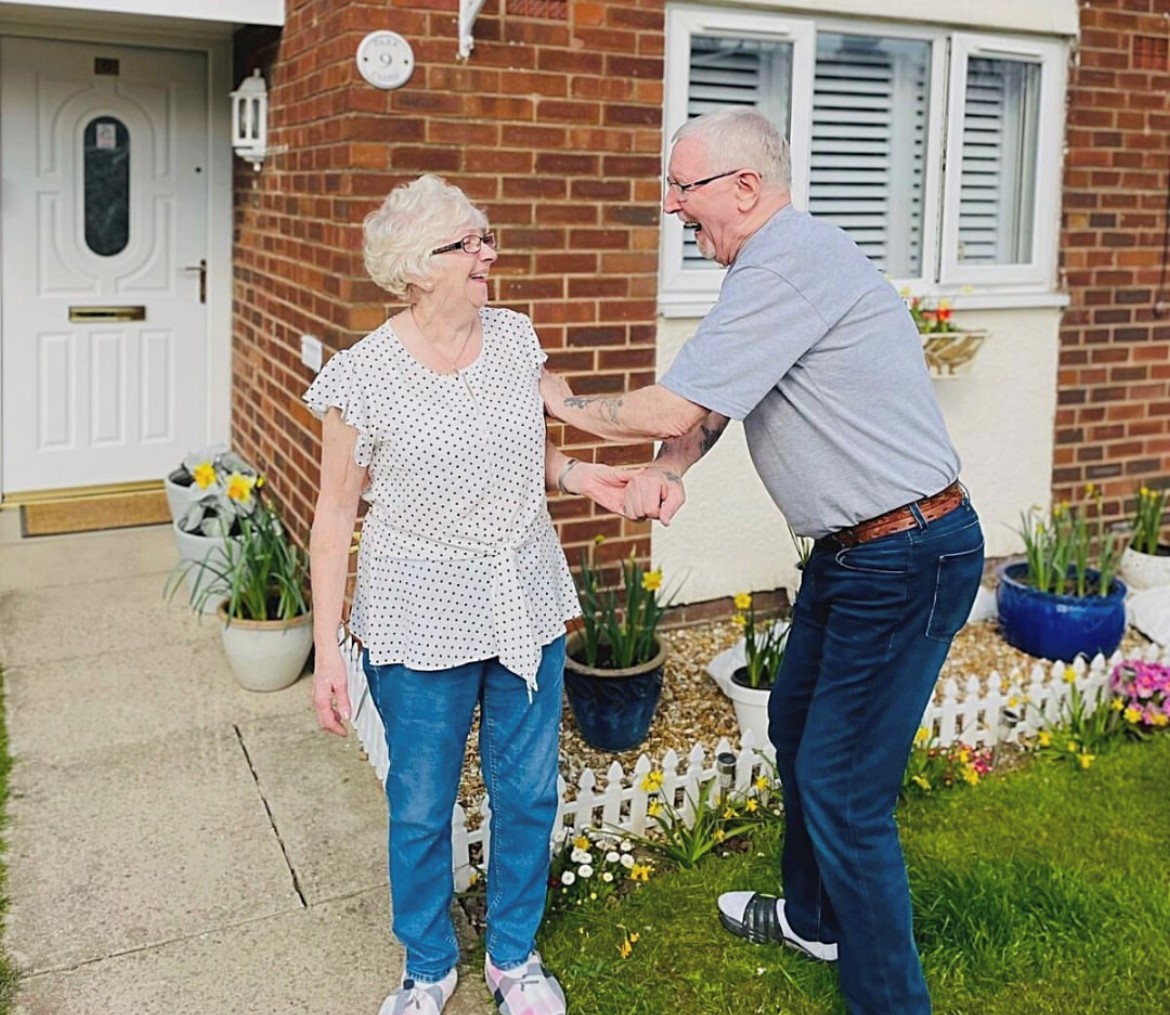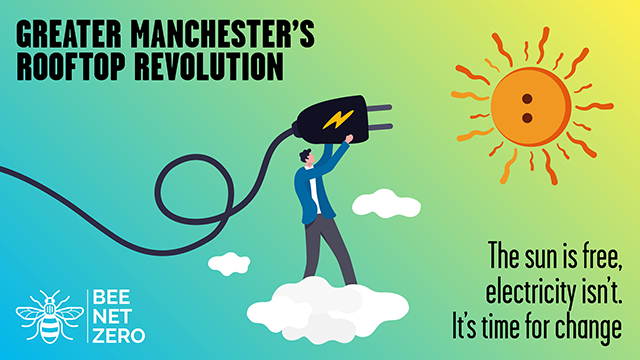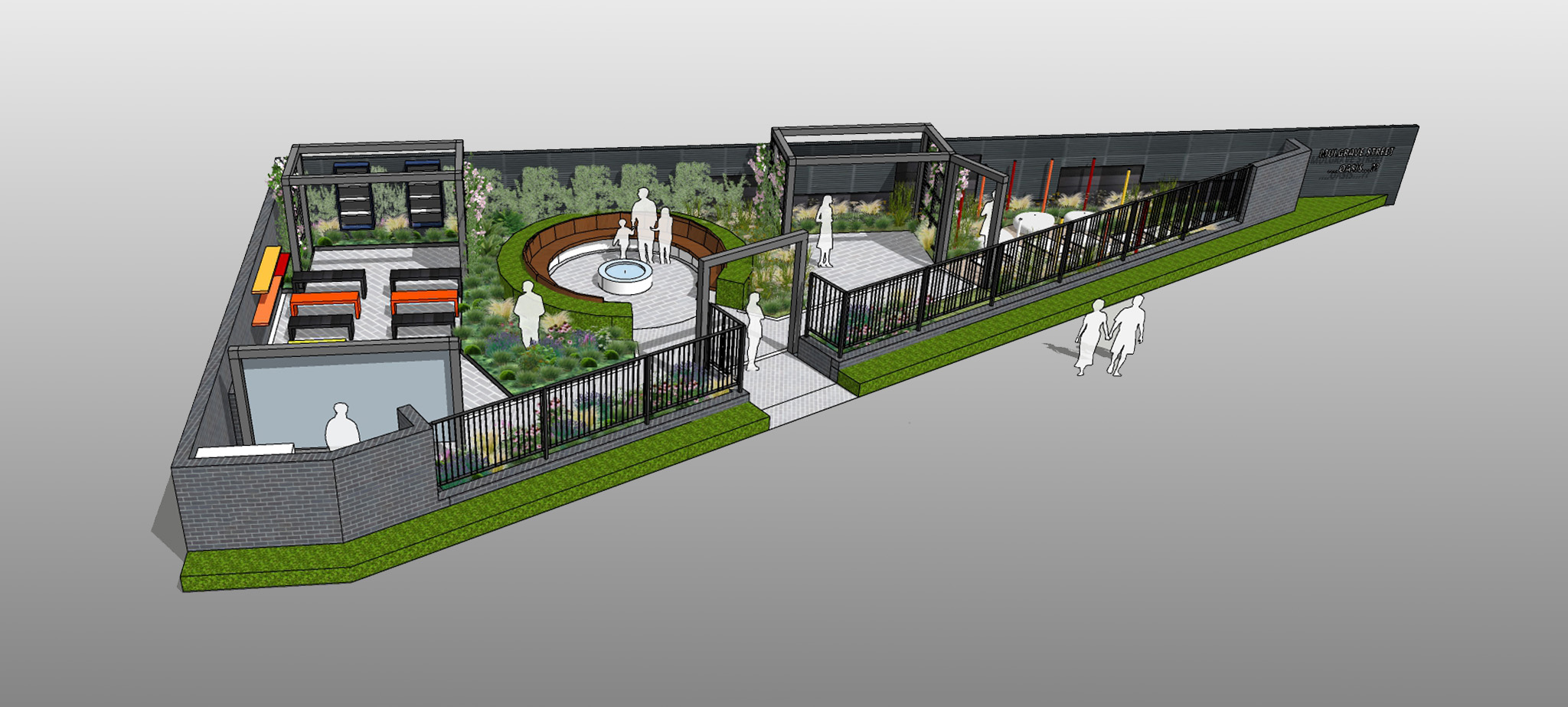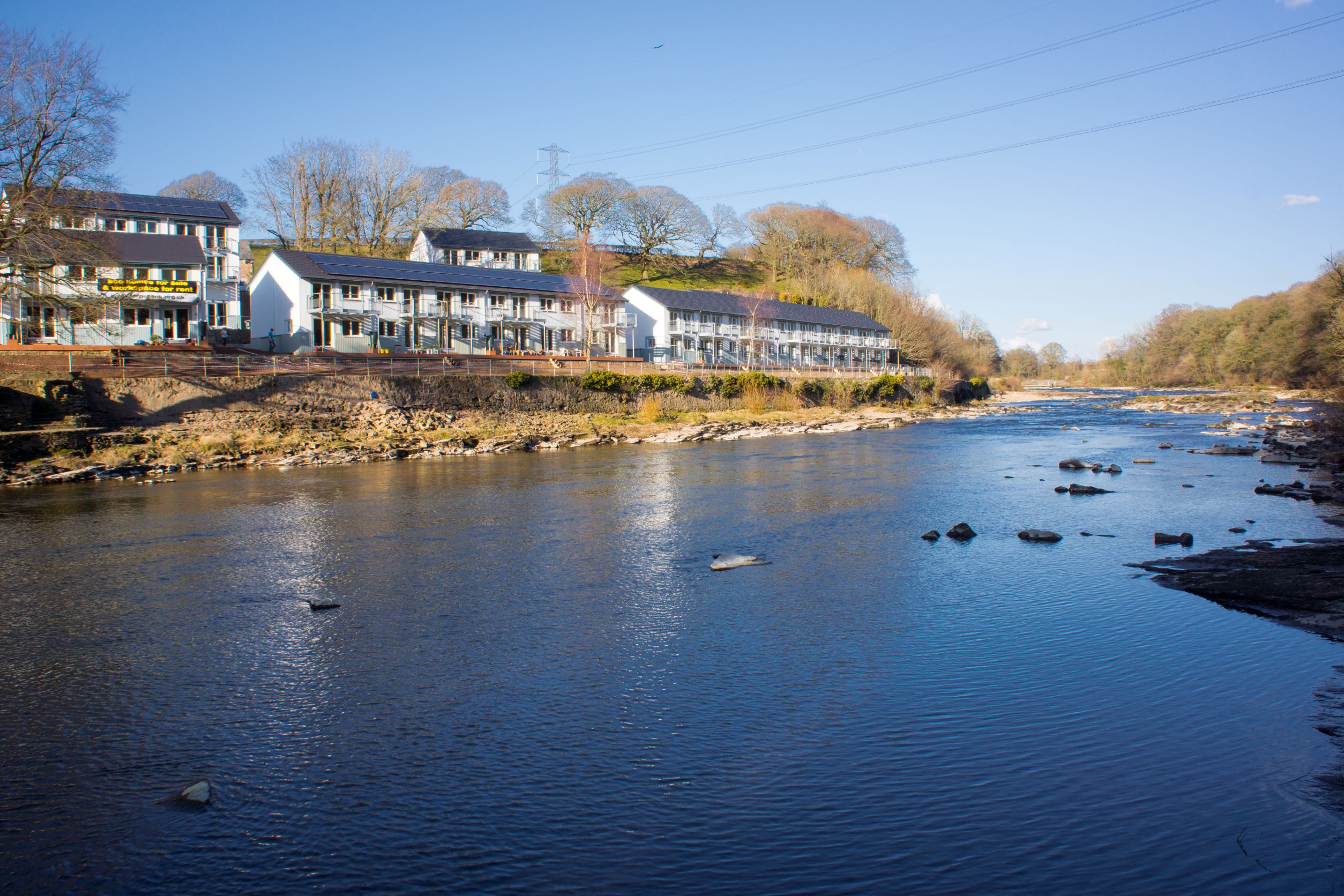
Lancaster Cohousing
Lancashire
Our Story
The idea for our cohousing community started in 2004 when a group of friends in Lancaster tried to buy an old school together to retrofit. The idea grew and eight years later we had created an £8 million development of 41 eco-homes and communal facilities by the river in Halton, a village three miles outside Lancaster.
Today it is home to around 60 adults and 18 children, aged between 2 and 79, and is designed, physically and socially, to encourage us to get to know our neighbours; a huge help during the pandemic. Our vision is to be an exemplar of sustainable living, and to make living this way enjoyable and easy. We do this through technology and by supporting people to change their behaviour.
The project has also acted as a catalyst for other developments. Our members set up a Community Land Trust, which is currently building 20 affordable Passivhaus homes for social rent and shared ownership nearby, with work about to start on a new Senior Cohousing project just next door!
The Challenge
As a community-led project, it took a lot of energy, time and determination to see it through. It’s important to have the right people in place to deliver the project the way you imagined it at the start; sourcing talent and experienced individuals in the local community cut a lot of time out in the beginning. As well as all the hard work, it was important to us to make it fun along the way too.
As well as the physical challenge, there was also a perception challenge that we had to tackle. Community-led projects are often seen as ‘weird’ or naïve idealists with no track record. This makes it harder to garner support from industry professionals and to secure land and funding. Therefore we set up as a conventional Ltd Company rather than a cooperative. This allowed us to secure to grants from the Rural Carbon Challenge Fund and Rural Development Fund for England, as well as offering discounts on house prices to early members.
Sourcing land was the biggest challenge however, followed by getting funding. A partnership with the Lune Valley Community Land trust opened the door to cheaper finance with their trusted housing association, which also lead to sharing our high workloads. But given the population density of the UK amid the current housing shortage, sourcing land was very difficult.
It was important to engage with local residents and any concerns they might have and aim to address then. It goes a long way in helping achieving planning permission and helps form good relationships with the local community.
Our Solution
Our homes are Passivhaus, one of the highest eco specifications combining excellent insulation, airtightness and a south facing aspect with mechanical ventilation. They also meet the Code for Sustainable Homes (level 6). Most importantly, they are warm and comfortable to live in with very low heating costs.
Our energy is renewable and is sourced from two local community-owned energy cooperatives. We raised funds for the Halton Lane Hydro project to build their 160kW micro hydro 250 upstream and offered roof space to Morecambe Bay Renewables for 89kWp of solar panels, with profits going to good causes. Our heating and hot water by a district heating system, fuelled by a single biomass boiler, using offcuts from a local sawmill.
Reducing our environmental impact comes through sharing; most of our residents have given up their cars to join EV car club. We share 4 washing machines between 40 homes, our food is ethically and locally sourced vegan and vegetarian, we have communal guest rooms and we have a healthy culture of borrowing from our neighbours.
Halton Mill is also a low carbon work and event space, a working community where small enterprises can flourish. It houses private offices, a coworking space, a yoga studio, shared art studios, and a community makerspace.
Want to find out more?
To find out more about Lancaster Cohousing, follow the links below:
https://www.lancastercohousing.org.uk/ https://haltonlunehydro.org/ www.haltonmill.org.uk https://lunevalleyclt.org/
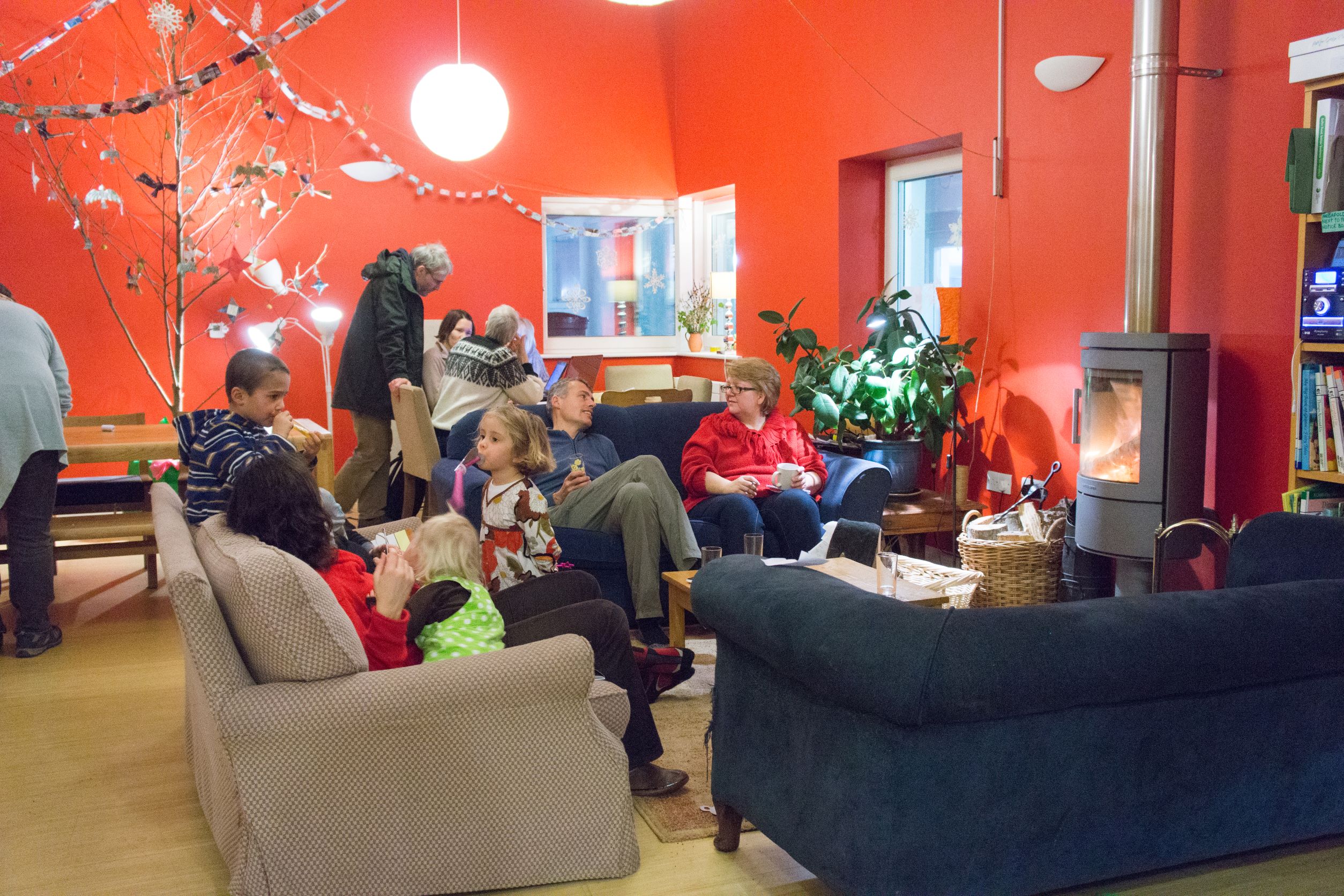 An xmas get together in the common house of our intergenerational community
An xmas get together in the common house of our intergenerational community
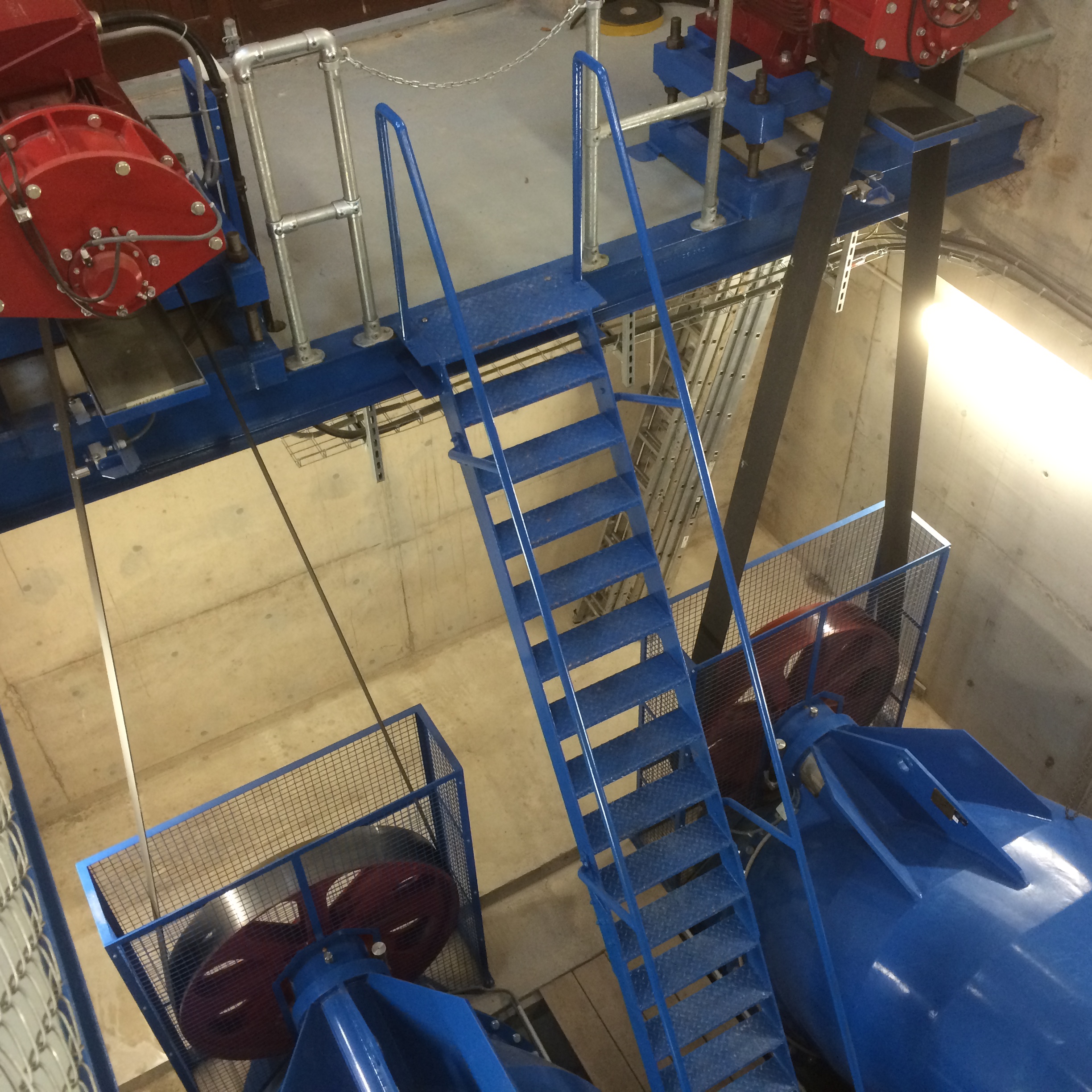 Two kaplan turbines provide electricity for more than 200 local homes
Two kaplan turbines provide electricity for more than 200 local homes



